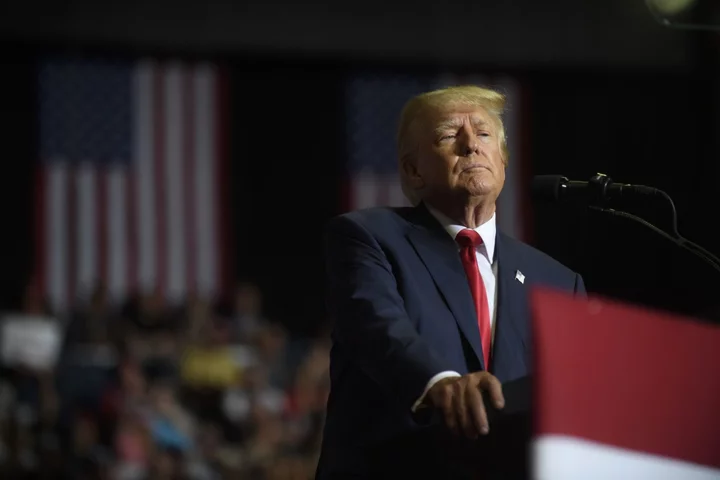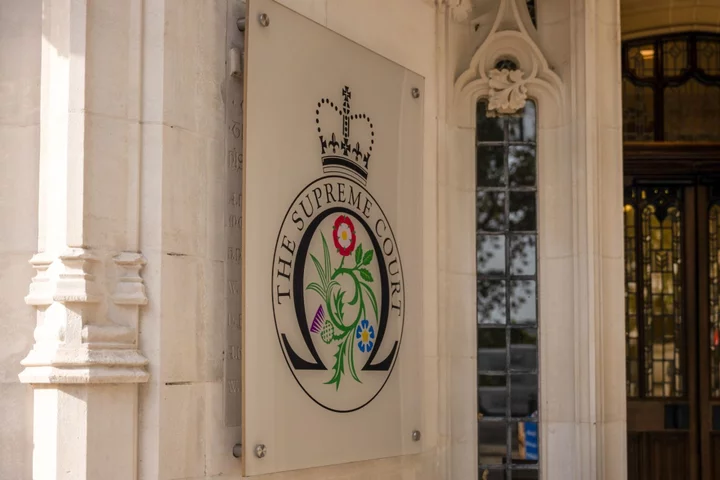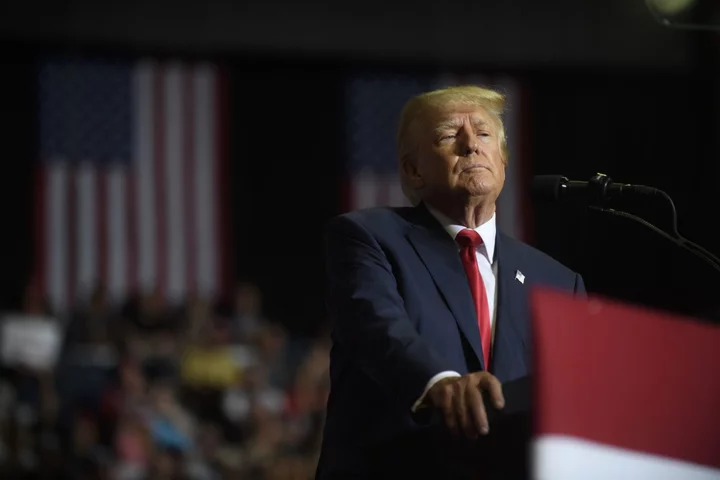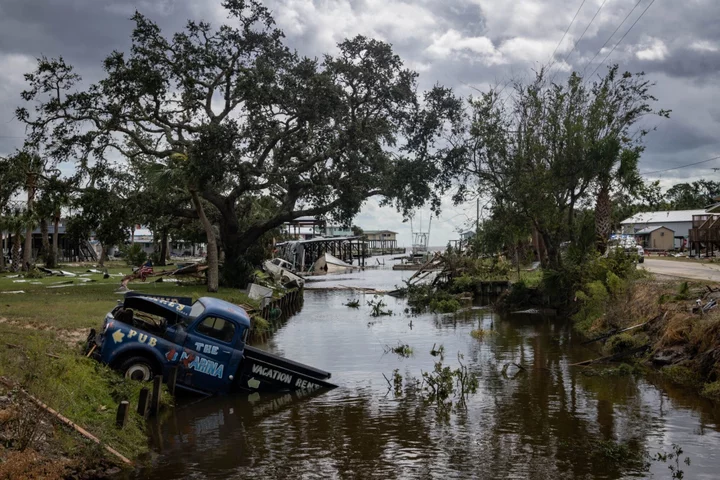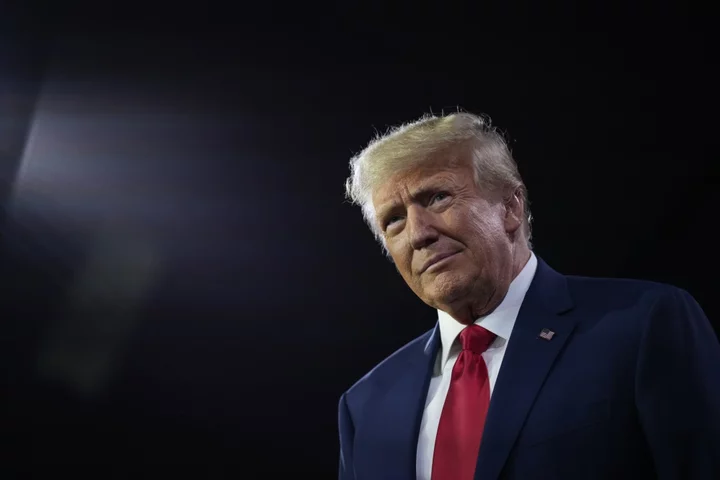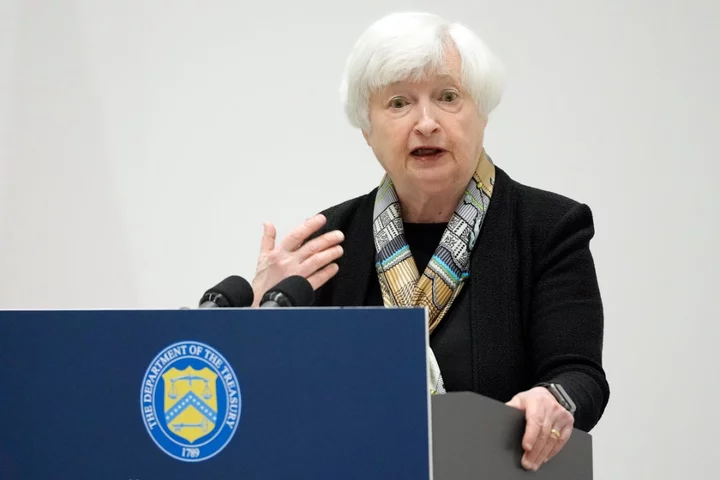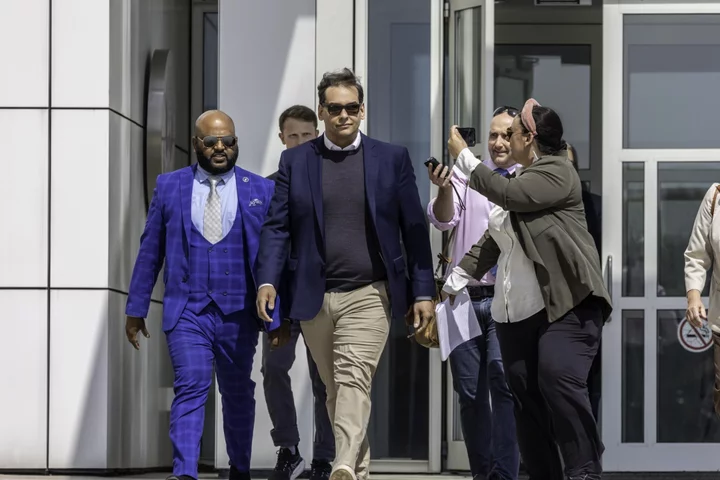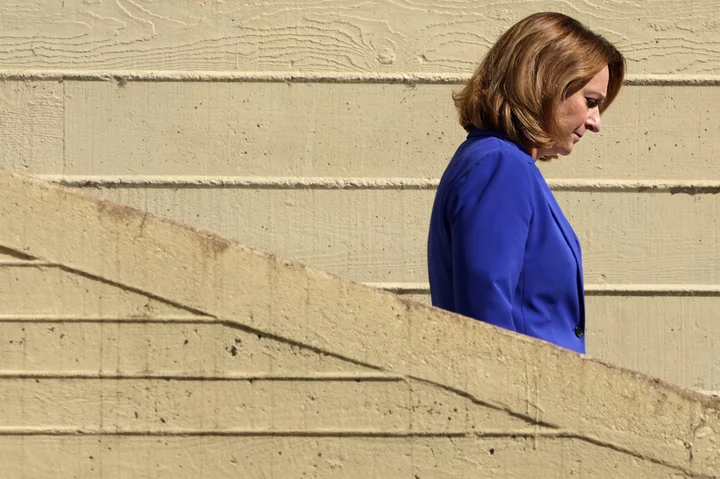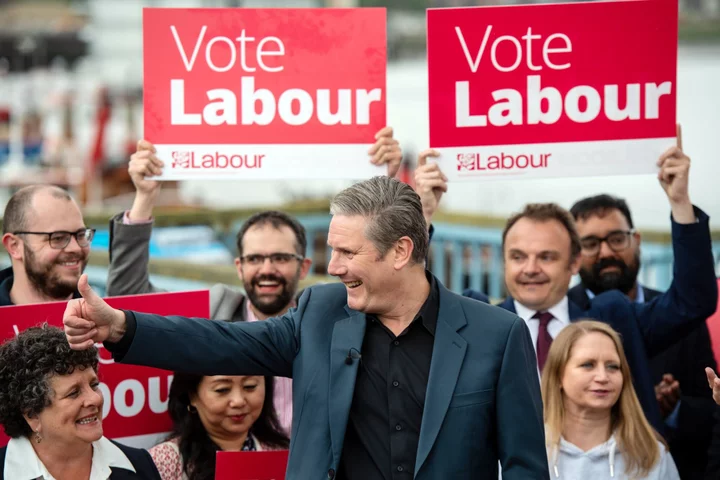Donald Trump’s Washington trial over his efforts to overturn the 2020 election was set for March 4 — the day before the Super Tuesday primaries central to his bid to regain the White House.
US District Judge Tanya Chutkan announced the date on Monday after hearing arguments in the federal case, in which Trump is charged with conspiring to obstruct the election. Special Counsel John “Jack” Smith’s office had asked to start on Jan. 2, kicking off Trump’s crowded campaign and legal calendar next year. Trump argued to delay the trial until April 2026, long after voters decide whether the former president will get a second term.
Chutkan said during the hearing that while Jan. 2 would be too soon, Trump’s proposed date “is far beyond what is necessary” and risked witnesses becoming unavailable and memories fading. She said the public had a right to a “prompt” resolution.
Setting schedules in the four criminal cases facing Trump has been an early source of conflict, especially as the presidential primary season picks up. Super Tuesday is the day 14 states, including delegate-rich Texas and California, hold their contests. And it’s only a few weeks before Trump is scheduled to stand trial in New York on March 25 on state charges that he falsified business records in connection with hush money payments to a porn star.
Then, on May 20, he is scheduled to go to trial on federal charges that he mishandled classified documents and conspired to obstruct government efforts to get them back.
Read More: Trump Faces Prospect of Up to Six Trials During Primary Season
Trump, 77, has pleaded not guilty to the charges in all of the cases and has denounced them all as politically motivated attacks.
In a social media post on his Truth Social platform Monday, Trump called the trial schedule “just what our corrupt government wanted, SUPER TUESDAY,” and added, “I will APPEAL!”
Trial date orders typically can’t be appealed, and at the hearing his lawyer John Lauro didn’t tell the judge the defense planned to pursue such a course.
Due Process
Lauro did lay the groundwork for an appeal if Trump is convicted. He told the judge that while Trump’s defense team would abide by her order, it couldn’t provide “adequate representation” within that time frame, and that Trump would be denied his right to effective counsel and due process.
Lauro also offered a preview of the defense’s strategy. He said he planned to argue, among other things, that this is a “selective prosecution” aimed at helping President Joe Biden’s re-election bid, that Trump is entitled to “executive immunity” given his position as president during key events in the indictment, and that the specific charges can’t apply to the alleged facts.
He said the defense might ask to pause the entire case while it pressed the immunity claim, and signaled it was an issue Trump’s lawyers were prepared to take to the US Supreme Court — a process that could take months.
Read More: Trump Georgia Trial Could Start Day Before Super Tuesday
Prosecutor Molly Gaston had argued the judge should set a date as soon as the defense could “reasonably” be ready, because Trump’s online posts attacking the integrity of the court and citizens of Washington risked prejudicing the potential jury pool. Later in the hearing, Chutkan said she would be watching for anything that might affect the court’s ability to seat a jury.
12.8 Million Pages
Gaston pushed back on a years-long schedule, saying the government had already turned over the vast majority of evidence totaling roughly 12.8 million pages, though she added the US didn’t believe that was the best measure of the defense’s workload.
Gaston said the evidence included a “road map” to the government’s case: an annotated version of the indictment that matched pieces of evidence to paragraphs in charging papers. That material was part of a core set of 47,000 pages of “key documents” turned over to Trump’s team, Gaston said.
Lauro had called the idea that they could get to trial in four months “an outrage to justice.” Raising his voice at times, he argued the defense needed far more time to prepare. He rebuffed the government’s claim that Trump’s lawyers had plenty of notice about the evidence and expected charges, given the earlier congressional investigation into the 2020 election and secret fights over grand jury testimony before the indictment.
Chutkan at one point asked Lauro to “take the temperature down.” She questioned why it wouldn’t speed up preparation to have evidence produced electronically in an easy-to-search format. Lauro said it was still a “gargantuan” amount of material to absorb.
Judges Talking
Chutkan said she had spoken to Manhattan State Supreme Court Justice Juan Merchan about the schedule in the hush money case, but didn’t share details about that conversation. When asked if Merchan would delay the New York state trial, a court spokesman confirmed the judge had spoken with Chutkan about the two trials on Thursday and that “at this time there is nothing further to impart.”
A spokeswoman for Manhattan District Attorney Alvin Bragg declined to comment. In an earlier interview Bragg suggested he might be open to changing the schedule in New York, depending on what happened in the other cases, saying he wouldn’t “sit on ceremony in terms of what was charged first or things like that.”
In Atlanta, where Trump most recently was indicted on state charges related to his efforts to overturn the election, his legal team is expected to fight a request by Fulton County District Attorney Fani Willis to start the trial in October. Prosecutors had originally asked for an early-March date but moved that up after one of Trump’s co-defendants invoked his right to a speedy trial schedule.
The Washington election case is US v. Trump, 23-cr-257, US District Court, District of Columbia.
--With assistance from Patricia Hurtado.
(Adds Trump’s reaction to trial date in first section and judges discussing schedules in last.)

